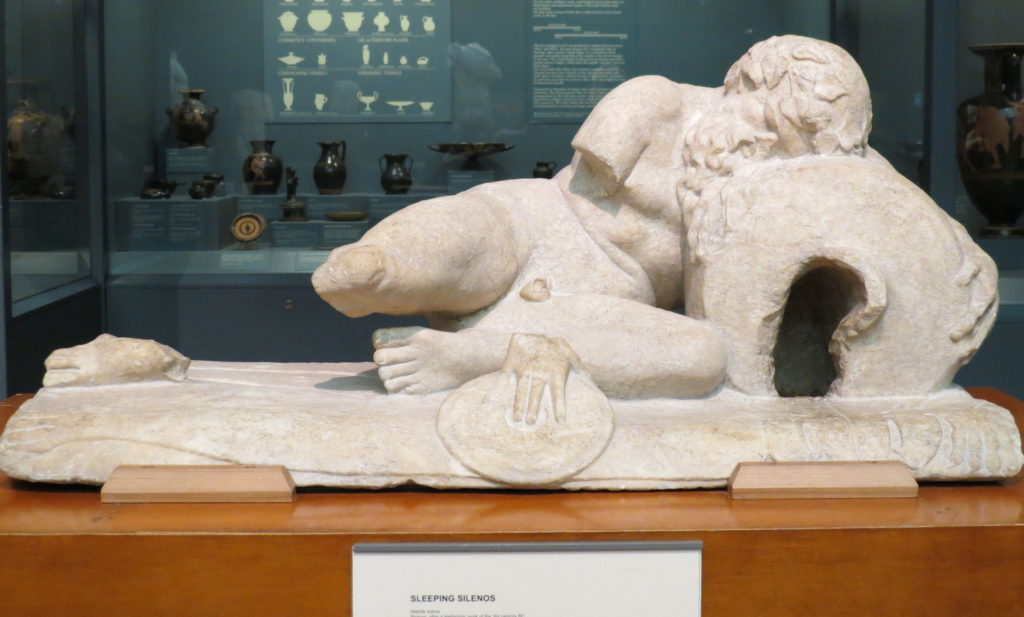TBM36: Fix the Brain, Love the Soul
If you want to fry your brain and turn yourself into a person who’s incapable of living a life filled with empathy, forgiveness, healing, and humbleness, you can choose to follow the instructions given by Neale Donald Walsch in his bestselling Conversations with God series of books. Although Walsch apparently no longer claims his “dialogues” are channelled, he still maintains they’re “inspired” by God. A lot of people have read these books and been gravely misled by his claims. I ought to know. I was once one of the naive spiritual seekers who trusted his words about non-judgment and re-creating myself and being part of a great Oneness that’s really just God experiencing himself in different ways.

I got up one winter morning in 2022 in time to see this beautiful golden sun pillar rising in the southeast. Despite what Walsch continually says, God already knows who God is — Mother and Father who together bring Creation, Science, Poetry, Artistry, and Teaching into all Life in a vast universe. They’re also the humblest two beings you could imagine because they have an unchanging moral code of right versus wrong. While you’re trying to learn about this code during your human life, you’ll be forgiven for your mistakes by Mother Father God. Forgiveness — not Pauline Grace — is essential to God’s moral code. Photo credit JAT 2022.
In Book 2 of Conversations with God: An Uncommon Dialogue (Charlottesville, VA: Hampton Roads, 1997), Walsch is musing on the question of how he should relate to disadvantaged people. His “inspired” dialoguing partner (i.e. God) says this in reply:
“Now, within that context, when you come across a person who appears, in relative terms as observed within your world, to be disadvantaged, the first question you have to ask is: Who am I and who do I choose to be, in relationship to that?
In other words, the first question when you encounter another in any circumstance should always be: What do I want here?
Did you hear that? Your first question, always, must be: What do I want here? — not: What does the other person want here?
. . . [yet] the purpose of your Holy Relationship with every other person, place, or thing is not to figure out what they want or need, but what you require or desire now in order to grow, in order to be Who you want to Be.
That is why I created Relationship to other things. If it weren’t for this, you could have continued to live in a vacuum, a void, the Eternal Allness whence you came.
So I devised a way for you to create anew, and Know, Who You Are in your experience. I did this by providing you with:
1. Relativity — a system wherein you could exist as a thing in relationship to something else.
2. Forgetfulness — a process by which you willingly submit to total amnesia, so that you can not know that relativity is a mere trick, and that you are All of It.
3. Consciousness — a state of Being in which you grow until you reach full awareness, then becoming a True and Living God, creating and experiencing your own reality, expanding and exploring that reality, changing and re-creating that reality as you stretch your consciousness to new limits — or shall we say, to no limit (pages 157-158).”
These quotes are the essence of what Walsch repeats in a barrage of clever words and cliches spread over many books. Again and again he insists there’s no “right or wrong,” no objective moral Truth you must obey. You are a spark of God, says Walsch (though I can’t say for certain that Walsch ever uses the Gnostic term “spark”) and your job is to decide who you want to be and then go into the world and continually re-create yourself without being afraid that you’re doing something wrong or immoral. In fact, says Walsch, your only real responsibility is to embrace your “right to be right.”
But . . . if Walsch decries the human tendency to decide what’s right and wrong, then surely he would also object to a person who claims “the right to be right.”
Right?
Let me ask you this . . . What does it mean to you that Walsch uses no references to other researchers in his early books? (I haven’t read his later works, so can’t say for certain there are no such references in his later books.) What does it mean that he offers no back-up for his theories from science? Or from history? Or psychodynamic theory? Or biblical research? Or archaeology? Or pedagogical theory? Or neuroscience? Or even from the dubious annals of mysticism?
If Walsch isn’t a scientific researcher, and he isn’t a theological or religious scholar, and he says he isn’t even a bona fide channeller, then what the hell is he? Where did he get his theories, and what is the nature of his own personal meta-choice?
What gave him the right to mislead readers and imply through deliberate repetition (not to mention the titles of his books!) that two consciousnesses are having a dialogue in written form through the medium of his books: the narrator (Walsch) and God?
Did God get a say in these books? I’m thinkin’ not. I’m thinkin’ that Walsch likes the sound of his own voice. I’m thinkin’ that Walsch loves the story he’s created for himself about who God is and who you are. I’m thinkin’ he’s created an internal fantasy world to explain to himself why he felt “a vacuum, a void” earlier in his life. He’s come up with an explanation that works for him — an explanation that helps him avoid messy emotional issues like right and wrong, forgiveness, soul blueprint, empathy, and courage — and he’s telling everyone who’ll listen that he’s right about God and everybody else is wrong.
He’s also encouraging his readers to become self-absorbed, self-entitled, narcissistic brats who can be “anything you want to be” because fighting and clawing your way up the ladder of success is really just “the act of God being God . . . Me being Me — through you! (Walsch, page 159).”
A person who is continually redefining himself/herself — continually “re-creating” himself/herself, as Walsch describes it — is a person who has no strong internal sense of self. From a neuroscience point of view, this is a dangerous thing.
The most recent issue of Scientific American Mind (May/June 2012) has an excellent article by Carrie Arnold called “Inside the Wrong Body.” Despite the confusing title — the title makes me think of changelings! — it describes recent research into a little known human sense called interoception. Interoception is the awareness of the internal state of one’s own body — that is, an internal sense of self. Interoception relies on parts of the brain I’ve written of elsewhere in the context of boundary issues and relationships: the parietal lobes, the insular cortex, and the occipital lobes. These are the parts of the brain you can see on my own brain scan as being highly active in the normal baseline state of just kinda hangin’ and being relaxed (the so-called default mode network). These parts are normally active in my brain because I have a very strong internal sense of who I am and who I’m not. (Please see SPECT Scans of the Author’s Brain.)
When a person has difficulties with interoception (i.e. when the parietal lobes, the insular cortex, and the occipital lobes don’t work together the way they should in the healthy human brain) a number of dyfunctional behaviours arise. Those who lack a strong inner sense of self are very poor at consciously noticing their own pain, thirst, hunger, body temperature, and emotions. They don’t notice when they’re shivering with cold. They don’t notice they should go to bed and get some sleep unless they look at the clock. They often become obsessive about food and eating. (Hence a strong link to anorexia nervosa, bulimia, and body dysmorphic disorder). They don’t look after themselves unless they’re retaught as adults. (Interestingly, in a strict ascetic religious community, these people would be hailed as heroes and saints for denying the needs of the body — another example of the differences between traditional religious asceticism (which I don’t endorse) and the soul-and-science-based faith (which I do endorse)).
An even more insidious issue arises from interoception difficulties, however. As author Carrie Arnold reports, “Those who lack a keen awareness of their internal state also seem to be easily swayed by the opinions of others [emphasis added]. They may evaluate their goals and attributes based on how they think others perceive them rather than by their own standards (page 40).”
In other words, if you don’t know who you really are as a soul, if you can’t recognize yourself in a mirror, if you can’t stick to your own soul purpose and your own personal story, if you can’t work from your own inner set of sheet music and be proud of it, if you can’t see your own personal boundaries and your own deeply encoded sense of right and wrong, you’ll blow like a leaf in the wind for your entire adult life. You’ll never feel safe, you’ll never feel grounded, you’ll never feel proud of who you are because you’ve never allowed yourself to know who you are as a soul.
You have a story. You have a soul purpose. It’s not something you can “create” or “invent” as you go along. It’s hardwired into your DNA, and you can’t change it. Neither do you want to change it if you’re living your life from the core of your own selfdom — your soul. Your soul ain’t’ broke. So why try to fix it? It’s just your biological brain that ain’t working so hot. Fix the brain, love the soul. That’s one of my mottoes.
Neale Donald Walsch wants me to believe that God has given me the gifts of Relativity, Forgetfulness, and becoming a True and Living God. Thanks very much, Neale, but I’m real happy with my gifts of objective, non-relative, scientific reality, combined with full remembrance of God’s divine love and complete knowledge of my humbleness and courage and worthiness as one unique child of God among trillions and trillions of angelic children.
Panentheistic Oneness is seriously overrated.

Finally! After several years of study, I earned my Master of Theological Studies in June 2014. For me, ongoing academic study is an important spiritual practice — one made easier and more productive for me because I know who I am as a Child of God. I know my purpose.















